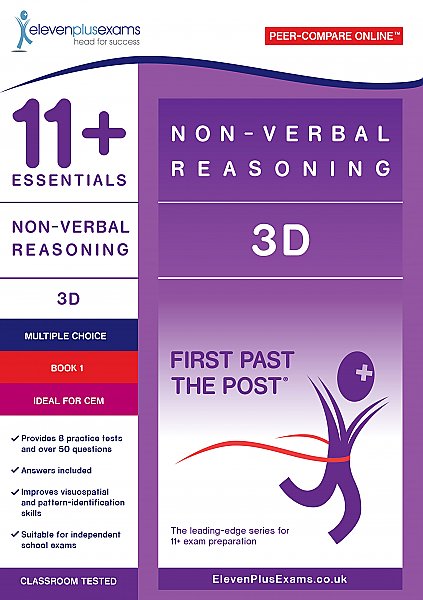11 Plus General Tips
Introduction
The axiom for 11 plus preparation is “Practice, Practice and Practice”, but that in itself is not particularly helpful.
General Tips
Listed below are some revision tips for parents and students from those who have been through the ‘process’:
- Do not overload your child! Allow them plenty of breaks, even if they’re only 5 or 10 minutes long. This helps them to take it all in.
- Bear in mind that typically a child’s attention span ranges between 30 minutes to 50 minutes. Part of the build up process is to increase the attention span gradually.
- Create a fridge list of the topics within each subject you need to cover.
- Revising in a few different places around the house, or even in a library means that taking an exam in a new place becomes easier.
- Active revision is a great way to learn, this means plenty of past papers or simulated 11+ exam questions in exam conditions. There are plenty of mock exams that can help.
- If the exam is in the morning then in the run up to the exams do all the practice papers around the same time as the exam so that your child mentally adjusts to perform at peak at that time.
- Visual aids such a mind maps (spider diagrams) showing all the different parts of a topic that needs to be learnt. This could be useful to summarise a subject, link information in different ways and mark progress giving your child a sense of achievement.
- Try using Mnemonics. This is a way of remembering information by using abbreviations, words or phrases. For example, we can remember colours to the rainbow by “Richard Of York Gave Battle In Vain” (Taking the first letter of each word to give you the first letter of the colour). The more personalised they are the more memorable they become and making them up could loads of fun and is an indirect form of revision!
- Rewards! As each 11+ topic (e.g. question type) is finished or if a better mark than expected is achieved, why not have a mini-treat for your child and yourselves? Another way of doing it is to set a target and the reward if it’s met.
- When doing practice 11+ papers, mirror the style that will be in the next test, it could be either the standard (no choice of answers) format or the multiple choice format. Most grammar schools now use multiple choice style exam papers, and usually most independent schools use standard, but it’s still worth a check.
- Some parents think that the insisting that their child does a standard format will make the multiple choice exam seem easier, however those using this approach should in the run up to the exam make the preparation as realistic as possible to the real thing.
- Doing 11+ papers under exam conditions shows if the student needs to work on the speed by which he/she answers as every mark counts.
- Use the answer book to go through a test paper to catch even the silliest mistake as everybody can make errors under timed conditions.
- Understand what is learnt and apply that knowledge to problems, for example in maths, to reinforce the lesson.
- Allocate more time to the subjects your child is weaker in, e.g. Non-verbal reasoning rather than letting him/her avoid it because then it seems more daunting to cram it in the end.
- Focus your energy on the process of studying rather than your eventual goal and ultimate result.
- Remember – Brain is muscle, therefore just as you would after any other exercise, make sure your child rests in order to recover from activity and brain overload! It would also help them if when they were resting the talk is not still all about exams because that would be counter productive too.
- Plenty of exercise and nutritious food is a must to keep their brains in good working order – in terms of treats stay away from sugary rewards!
- Another helpful tip is to make sure your child is sleeping properly so that they are fresh and happy for another gruelling day at the 11+ treadmill. If they are having trouble, a mug of hot chocolate could help or a long hot bath or perhaps even an extra 15 minutes of television to get their mind to relax.
- Make sure both parent and child have a good night’s sleep before the 11+ exam as you have to keep each other calm!
- In the morning have a good breakfast for energy and leave early so that you arrive with plenty of time for the exam, this will help you both calm and composed; also avoid topics of conversation that make you tense.
- A good thing is constructive talk about the task ahead, “psyching” yourselves up to face the challenge rather than avoidance because that could just increase fear of the exam or of failure.
- If your child starts to panic, stop them thinking self–defeating thoughts and tell them that whatever the outcome you are both proud of the effort they have made. All they need to do is to work calmy through the paper and do the best they can.










